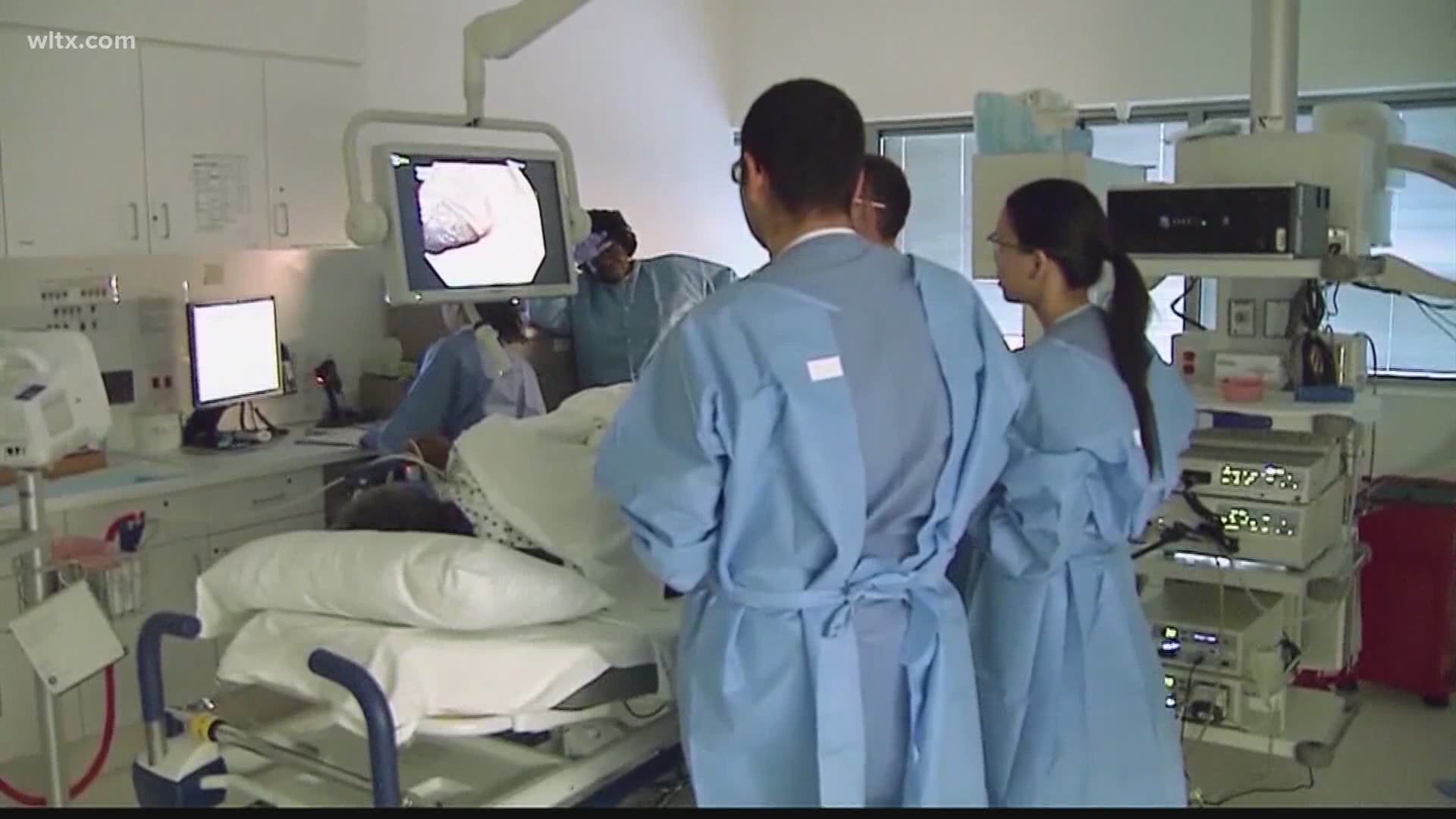LEXINGTON, S.C. — The death of actor Chadwick Boseman from colon cancer has brought more attention to this disease.
It's the second leading cause of cancer death in the United States. So in this month's Speaking of Health, we talked with a doctor about what you need to know.
According to the American Cancer Society, excluding skin cancers, colorectal cancer is the third most common cancer diagnosed in America, impacting 1 out of 23 men and 1 out of 25 women.
There's not much conversation about this disease, even about what it is.
"It's a tumor that typically starts as a pre-cancerous polyp inside the colon which is a large intestine or large bowel all the way down to the rectum," said Dr. Scott Graupner with Lexington Oncology Associates.
What are the symptoms?
"Changes in bowel habits, whether that be diarrhea or constipation, crampy abdominal pain, unplanned weight loss, blood in the stool or dark stools," Graupner said.
What are the risk factors?
"Your diet. Especially red meats have been associated with colon cancer and then processed meats as well like hot dogs and even some lunch meats. Being obese, smoking, heavy alcohol use can be a risk factor as well. Some of the more non-modifiable risk factors include genetics and having a family history of colon cancer.
Are there groups at a greater risk of getting colon cancer?
"In the United States, African-Americans are 20% more likely to develop colon cancer"
And according to the american cancer society, it's also deadlier for African-Americans.
"It's thought that this is possibly attributed to poorer access to healthcare, poorer rates of colon cancer screenings. It could be a higher risk of high fat diets. It could be a genetic component as well that needs more research."
This isn't just for older adults.It's a growing number of cases are being diagnosed in younger adults.
"One of the reasons it's thought that younger people are at risk of developing colon cancer, they don't want to talk about the symptoms because they can be embarrassing," Graupner said. "We as medical providers want to hear everything in your life that is concerning to you so please bring that up and realize that this is a serious disease that we can help prevent if caught at an early age."
Here's what he advises.
"I strongly recommend finding out your family history. is there anyone in your family that has a history of colon cancer, especially at a younger age."
The American Cancer Society recommends getting a colonoscopy at age 45. If you have a family history of colon cancer, or if there are symptoms that you're concerned about, talk to your doctor about the possibility of having it done at an earlier age.

